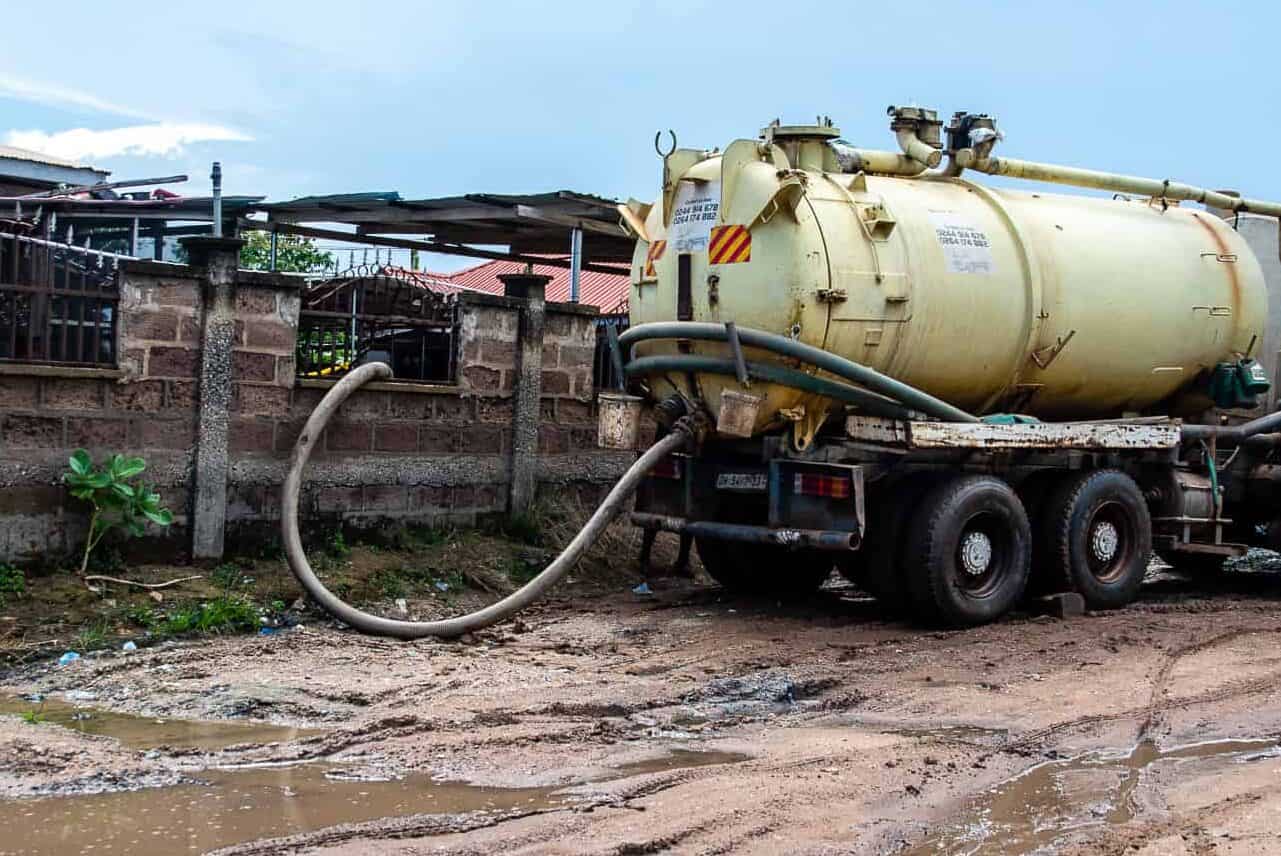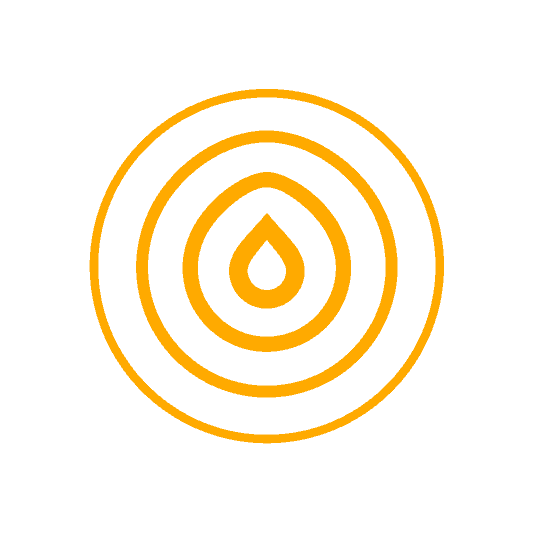
Safisana treats over 10,000 tonnes of faecal sludge yearly collected from multiple public toilets in the urban communities of Greater Accra. For the supply of this waste, Safisana works closely with local SMEs like faecal truck driver Peter Tetteh, who operates a special vacuum truck designed to empty septic tanks and pit latrines. Instead of bringing the waste to dumpsites, he brings it to the Safisana plant where it is treated, used to produce biogas and further processed and recycled into a 100% safe nutrient-rich organic fertilizer. By removing the faecal waste from households and community toilets, heroes like Peter help us on our mission to improve sanitation and health in the community.
"My name is Peter Tetteh, and for the past 13 years, I’ve been working as a faecal waste truck driver in Accra, Ghana. I’m proud to say that I was one of the first of Safisana's faecal waste truck drivers to join, and I’ve been working with them since the beginning. Waste truck drivers play a crucial role in removing faecal waste from households, organizations and public toilets, thereby preventing inconveniences such as foul odors, pollution and environmental degradation. Our work is vital in maintaining public health and cleanliness."
On-demand service
"My primary responsibility is to ensure that faecal waste is collected from toilets and transported to proper disposal sites. We use a specialized hose connected to the tank on our trucks to collect this waste, and then we carefully unload the waste at designated locations, such as Safisana. Each workday is different, Safisana, other organizations, and even private households may call upon my services. Therefore on some days, I may only need 3 or 4 trucks and on other days I find myself coordinating about 10 to 15 trucks to meet the demand. On extremely busy days, typically at the end of the month, I might even deploy as many as 25 to 30 trucks for our operations. On average, I unload about eight to ten times a week at Safisana's site. By way of contrast, there are days when we don’t get a call at all. This makes my work unpredictable, but it keeps me on my toes."


Health risks
"My work takes me to various areas in Accra, consequently I see a lot of different sanitation conditions. In some neighborhoods, such as Ashaiman, the level of cleanliness is very low. I’ve noticed that many people are unaware of the importance of proper sanitation practices. I am concerned about the effects that the lack of hygiene brings to people. For example, many people have connected their toilet pipelines directly to open gutters. Apart from the health risks that it brings, it also harms the environment. Especially when heavy rainfall falls, making gutters flood and mixing rainwater with faecal waste. Additionally, open waters are sometimes used by taxi and bus drivers to wash their cars. Not knowing that the water is contaminated with the bacteria of faecal waste. Even worse, in some neighborhoods the water might even be mixed with water that people use for washing."

"I was the pioneer, and my truck was the first to unload its waste at Safisana’s plant."
Peter Tetteh
Hope for the future
"Luckily, I’ve encountered promising initiatives in Accra that help elevate sanitation issues. Public toilets, for example, provide cleaner and more hygienic alternatives to open defecation. Generally, these facilities help the community ease the pressure on open spaces like bushes and gutters, reducing the likelihood of unsanitary conditions. Another most effective solution is Safisana’s approach. After we collect the waste, Safisana's faecal waste truck drivers transport it to the site. Safisana takes a whole different approach in processing the waste compared to others. Other dumping sites do not take the next step to turn the waste into a product. Some rather burn or bury the waste which has toxic effects for our environment and health. I still remember the first day at Safisana; I was the pioneer, and my truck was the first to unload its waste at Safisana’s plant. What sets Safisana apart is that they turn waste into a valuable resource. They generate electricity and produce fertilizer from the waste, contributing to the well-being of our local community."
"I strongly believe that Safisana’s approach is the way forward. Safisana’s sustainable waste management practices have the potential to empower communities and reduce the need for fertilizer imports, making the most of Ghana’s own resources for the benefit of its people. Personally, working with Safisana allows me to minimize travel distances, saving both money on fuel and time in traffic, and therefore reducing costs and increasing profits. I would be so happy if the government took the necessary steps to help Safisana expand. Such support would not only enhance community well-being but also promote environmental sustainability and contribute to our country’s growth. Safisana represents a shining example of how waste can be transformed into a valuable resource, benefitting society and the environment."

Read more
This story is part of a storytelling campaign in the running up to World Toilet Day on November 19th.
Read about the current state of sanitation in Ghana in 4 Out of a Million Reasons why celebrating World Toilet Day is important

